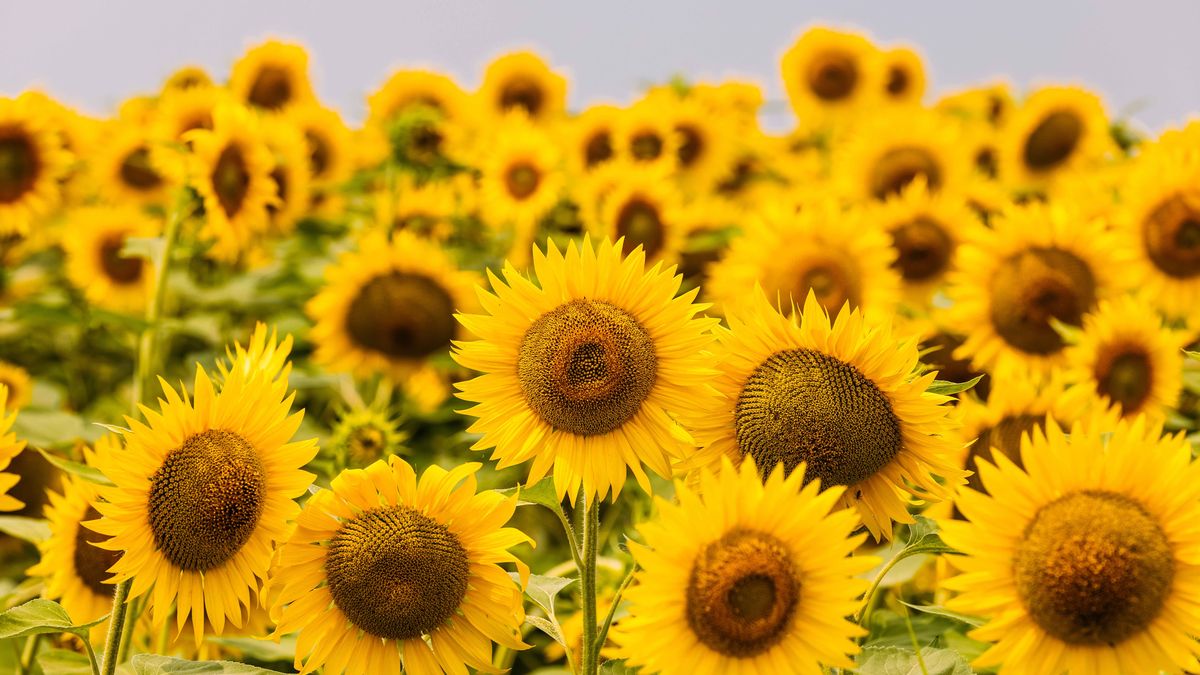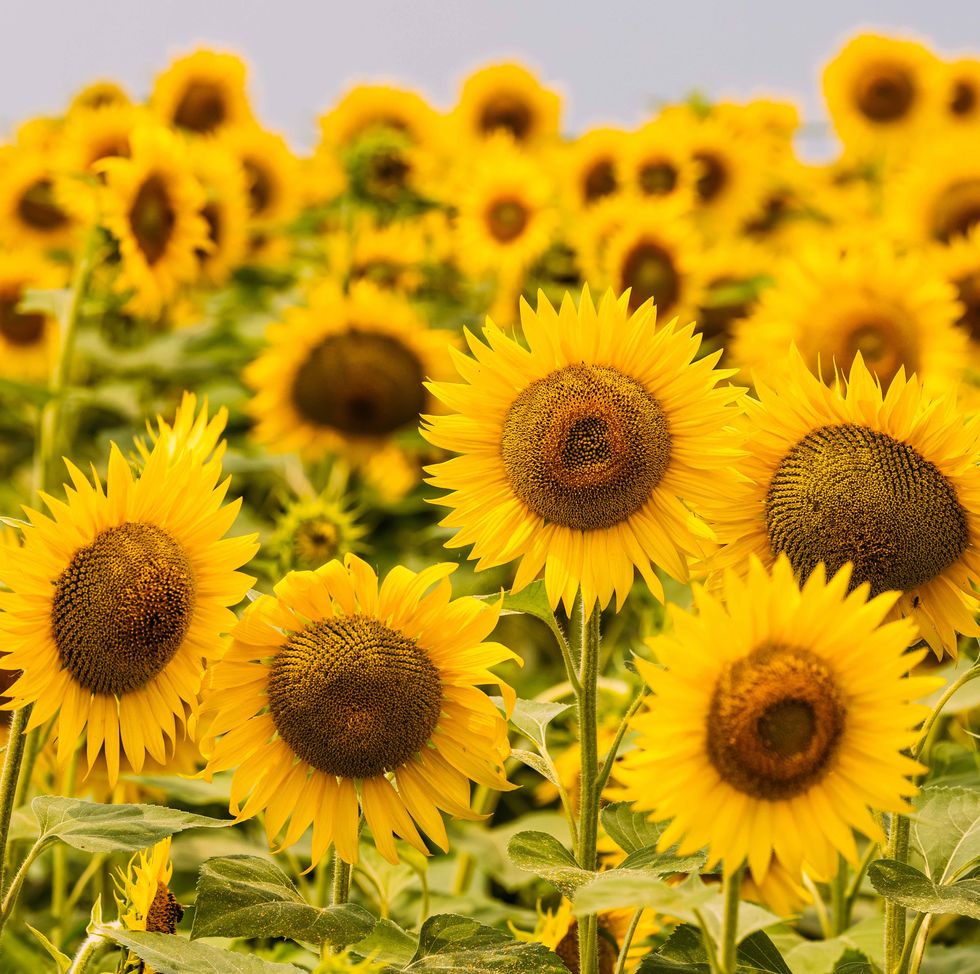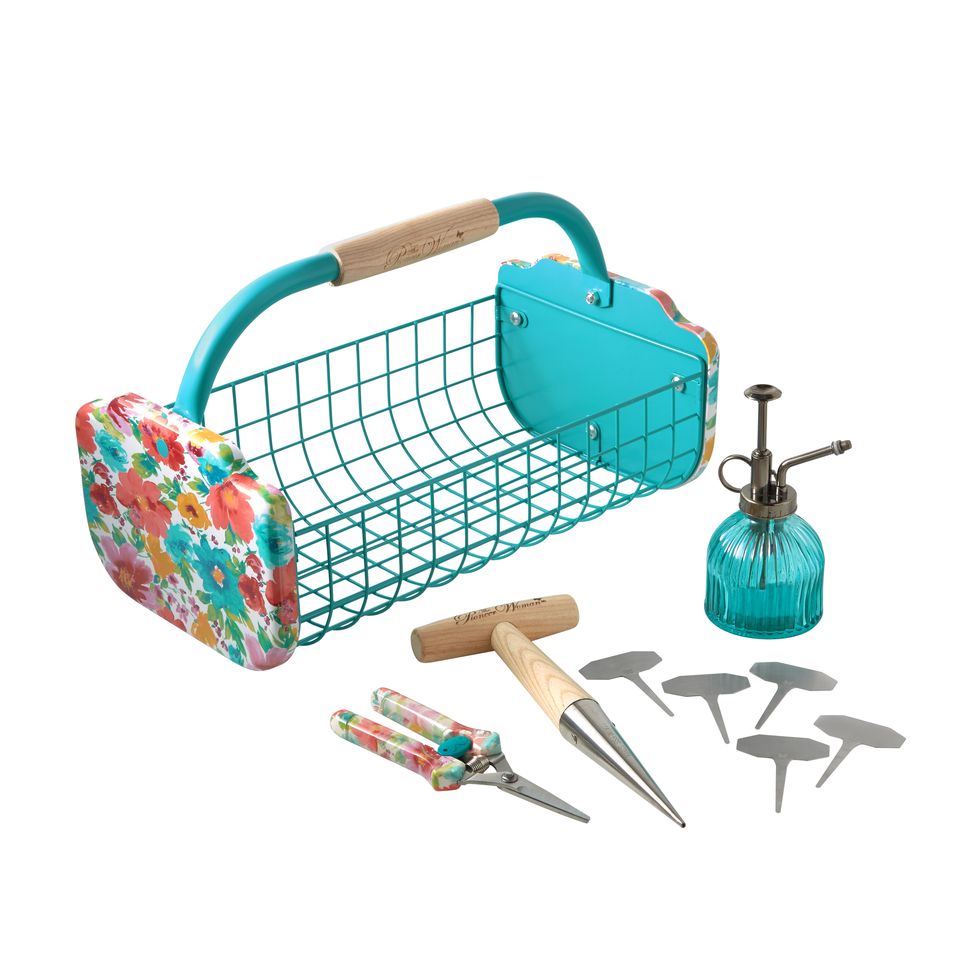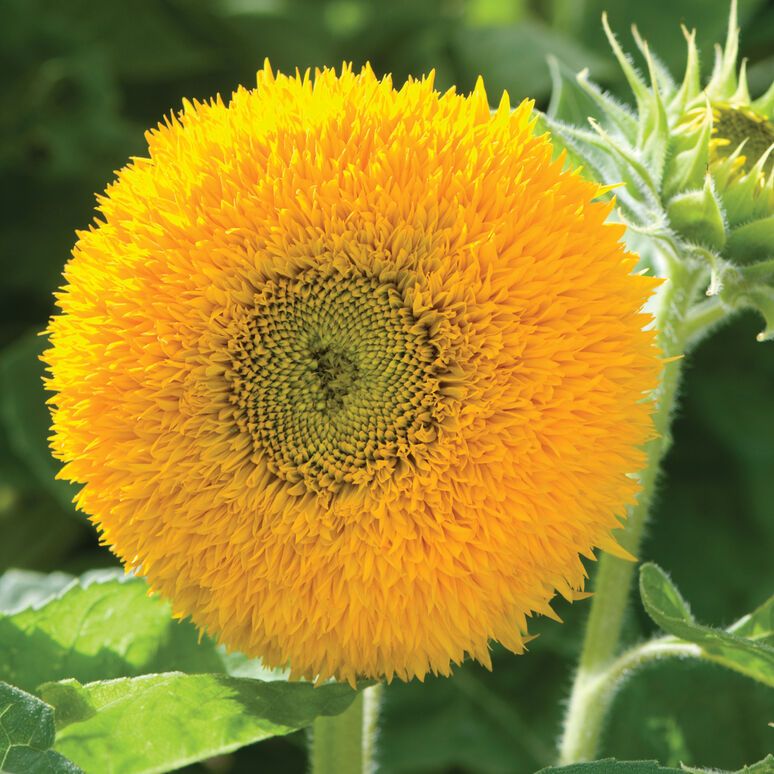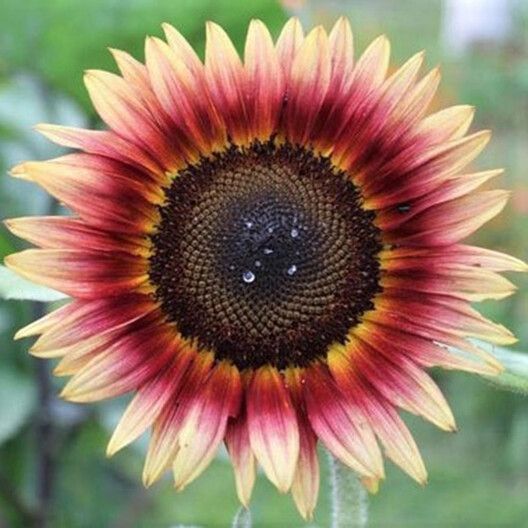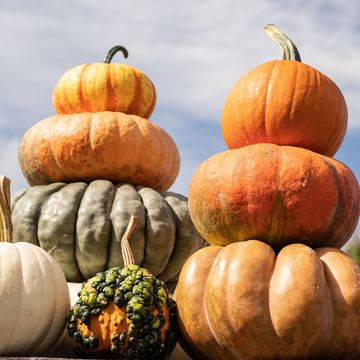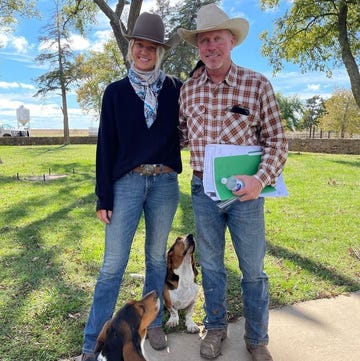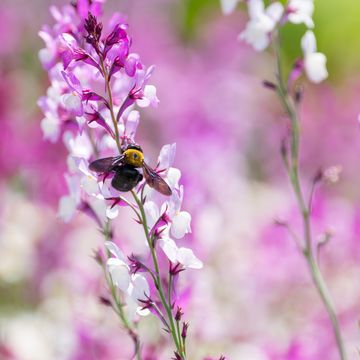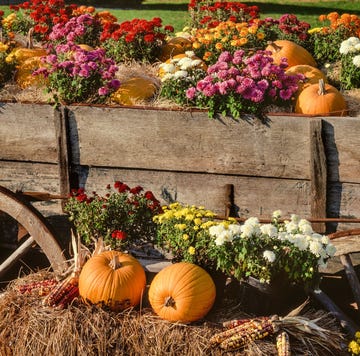It's impossible not to love sunflowers. Their cheerful faces brighten any garden, and they come in every color from the traditional sunny yellow to orange, red, creamy white, and even mixed shades. They have single or double petals, and range in height from two to ten feet tall. And they earned their name in a magical way: If you ever visit a sunflower field, you'll notice young sunflowers follow the sun's position throughout the day, a phenomenon called heliotropism or phototropism. (Though, as the flowerhead becomes heavy with seeds, the plant is less likely to exhibit this amazing natural feat.) They're also a favorite of pollinators—bees especially love these flowers for late season food.
Sunflowers are a favorite of The Pioneer Woman's, too. "They're so beautiful," says Ree Drummond, who started planting them on the ranch years ago. "Once I realized that sunflowers don't need much babying to grow, I was hooked. They can tolerate drought, fierce sun, and strong Oklahoma winds. In fact, they can withstand almost anything—except horses!"
Best of all, they're very easy to grow from seeds, which means they are super affordable. Here's everything else you need to know about how to grow sunflowers.
What kind of sunflowers should you plant?
There are countless types of sunflowers, including branching types with multiple stems. Read the seed package or description to learn how tall each variety grows, as well as the number of days to maturity. That's the amount of time it will take for your sunflower to bloom after planting. The time ranges from 50 to more than 120 days, so it's important to pay attention to this fact.
When do you plant sunflowers?
Late spring is the best time to plant in most parts of the country, just before the soil begins to reach around 70 degrees. That's when seeds begin to germinate so you'll want them in the ground before then. You can continue to plant every few weeks up until early to mid-summer for a longer harvest time. But if you plant too late in your hardiness zone, your sunflowers won't mature before the first frost.
How do you grow sunflowers?
Find a sunny spot in your garden. Sunflowers need six to eight hours of direct sunlight per day. You can plant the seeds directly in the soil after all danger of frost has passed. Plant seeds about one inch deep for varieties that stay shorter than five feet tall, and about a foot apart for the taller varieties. Water regularly until they sprout. After they're established, they're fairly drought tolerant but water every few days during dry spells to create strong roots that prevent toppling in windy weather. Keep the area weeded so the seedlings don't have to compete for moisture and nutrients. It's fine to fertilize your sunflowers with an all-purpose granular garden fertilizer.
Sunflowers are a favorite of many pesky animals in your garden such as deer or digging rodents such as chipmunks. You may be able to protect them from deer by planting seeds in pots near your house; this works fine for the smaller or dwarf sunflower varieties. You also can start sunflowers indoors a few weeks before the last expected frost in your area; use peat pots so you can plant the whole thing. This method may outsmart digging rodents, who are looking for the seed and will be less likely to dig up a plant that's six or seven inches tall, rather than an itty bitty seedling.
How do you harvest sunflowers?
When the heads nod downward and the tiny petals on top of the seeds have fallen off, you can cut off the entire sunflower, leaving about a foot of stem. Hang the flower head upside down in a warm, dry place with low humidity. It can take a few weeks for the sunflower to dry thoroughly. Harvest the seeds by rubbing your hand roughly over the surface, and the seeds should fall right out. You also can leave the seed heads intact for the birds to enjoy!
Arricca Elin SanSone has written about health and lifestyle topics for Prevention, Country Living, Woman's Day, and more. She’s passionate about gardening, baking, reading, and spending time with the people and dogs she loves.
